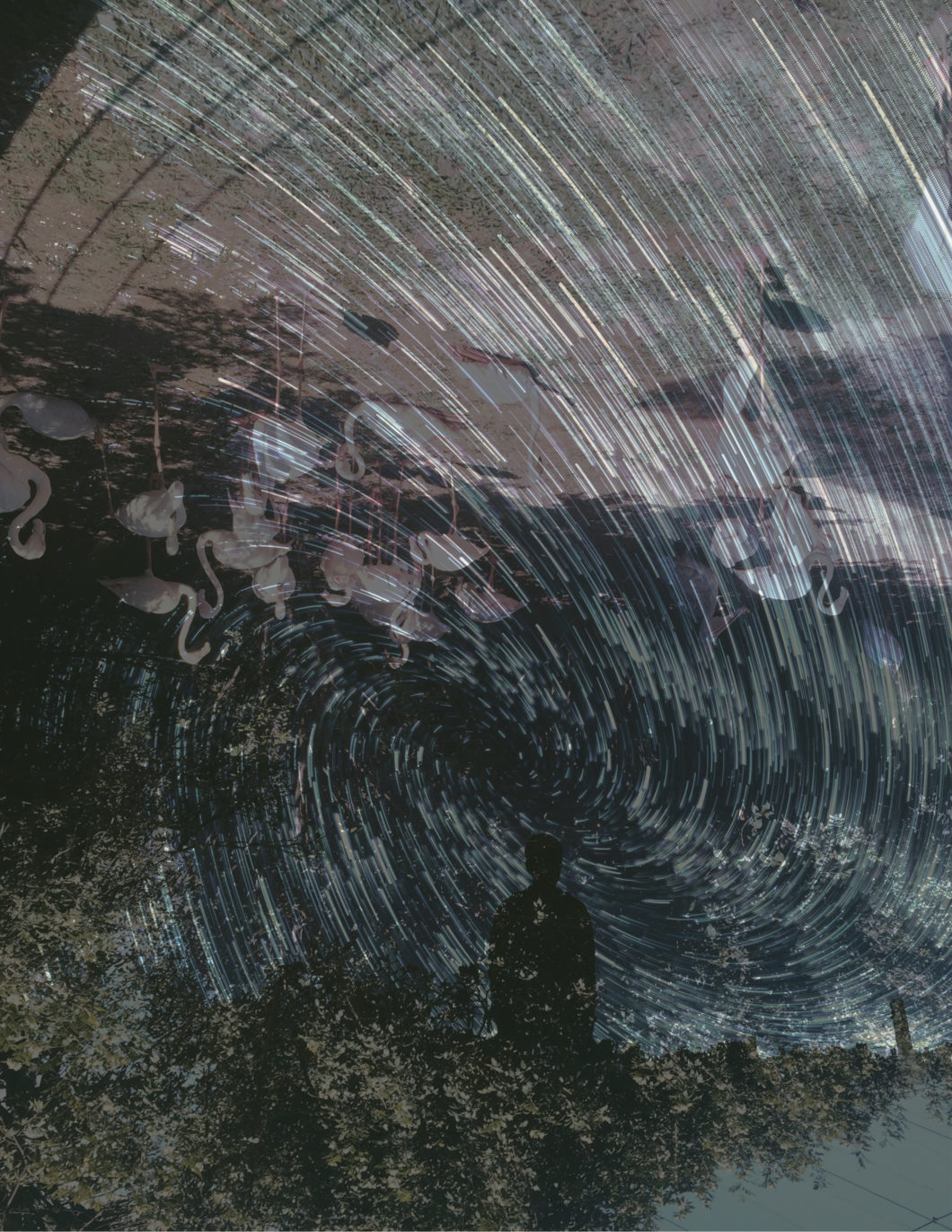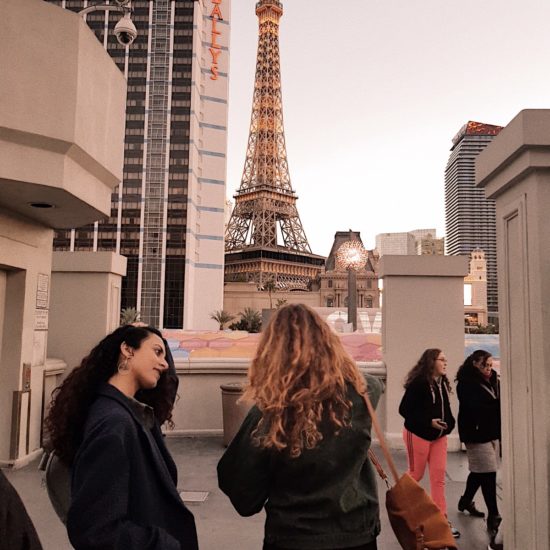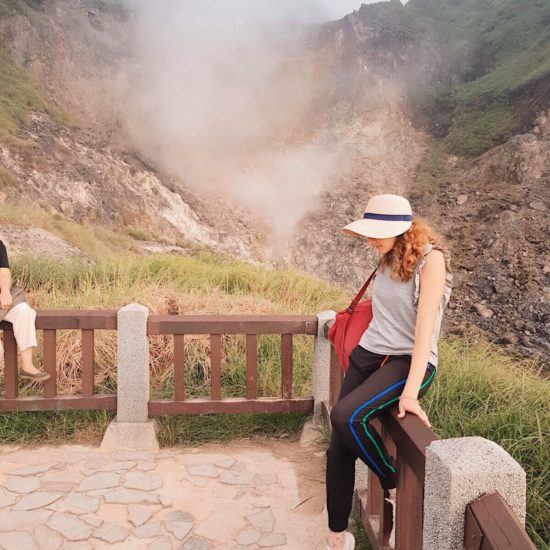Why is it that at that exact moment when you are feeling particularly directionless and aimless in your life, everything you read, see and hear are stories about other people taking the plunge, feeling inspired, driven to accomplish a goal they set their laser-focused sights on? Do we just not have enough media out there that documents that in-between period? Do other people miraculously bypass that murky time? That mind-numbing waiting period where you hope and pray that one day something will come along that will get you feeling fired up again. That period where you endlessly rack your brain for what you should focus on, for an avenue to direct your energies. Where you waste a lot of time scouring Google search results for a new project, group or job to get involved with. Where you try to keep the faith that something will come along eventually that gives you a sense of gravity and excitement. Yep, that period. But, until this period becomes a well-documented commonplace, you wait, awash in a world of purposeful people. Others move, but you’re at a stand still. And you’re just gonna resolve to feel it for awhile.
You know you aren’t moving as fast as you should or in a direction that feels gratifying. You know a change is needed, but figuring out what that change should be feels hard to pinpoint. It’s not that you’re afraid to make the jump, it’s that you don’t know where to jump to. I guess this period is what you could call being lost.
Of course, we can always take comfort in the fact that we are far from the first person in history to feel lost. Many notable writers, thinkers, actors, artists, and humans, just like us, have been here before. People have philosophized about it, talked at ends about it and theorized about the best methods for getting through it. And, in the end, all of the questions, theories and solutions seem to center around that one eternally mystifying question: what is the meaning of life? Or maybe the more accurate variation: what makes life worth living? That question. That lingering itch of a question. That question so large and so grand it has become cliche, and so important it sits beneath all of life’s big choices, lurking, hungry for some sort of answer.
The act of typing it out alone can make a person feel like a pretentious asshole. Like a precocious philosophy student taking their first stab at the almighty inquiry that all the great philosophers and thinkers have toyed with for centuries. The question that all of the world’s major religions will gladly offer up many answers to without batting an eye. Who are we to answer it? And yet, it’s still worth writing about because it’s something we all face, on some level or another, sooner or later.
And when we are at a stand still, when we feel like we aren’t moving and are looking for a change, that question comes to the forefront. We inevitably think, “I should be making more out of my time here.” We feel like we should be addressing that big question, in our own unique way. If not, then what’s the point right? And if not now, then when? And while finding out what the point is can often seem like the end goal, what if we were to take a moment to marinate in some other goals, some other ways of seeing, some other ideas for how to exist?
Maybe we should give ourselves a break from trying to “figure it out” for a second and read a few words from people who have already addressed this subject and emerged with their own ideas about how to live with the big question. We can try a few new perspectives on for size and take what we want from them.
Call it cheating if you will, but, with the help of the Internet, The Sun Magazine and the illustrious resource that is Brain Pickings, I give you a few other ideas to think about. Other ways we can be ourselves in this world. Other trains of thought to help us make peace within our minds and be at ease in the uncertainty that is this directionless time we’re in.
So when our minds are tired of thinking our way out, we can simply sink back into the words of others and feel a slight bit of comfort from those who have been here before and have found their way out, or, at the very least, their philosophy for dealing with it.
“Beware of looking for goals: look for a way of life. Decide how you want to live and then see what you can do to make a living WITHIN that way of life.”
–Hunter S. Thompson
.
We are here to witness the creation and abet it. We are here to notice each thing so each thing gets noticed. Together we notice not only each mountain shadow and each stone on the beach but, especially, we notice the beautiful faces and complex natures of each other. We are here to bring to consciousness the beauty and power that are around us and to praise the people who are here with us. We witness our generation and our times. We watch the weather. Otherwise, creation would be playing to an empty house.
According to the second law of thermodynamics, things fall apart. Structures disintegrate. Buckminster Fuller hinted at a reason we are here: By creating things, by thinking up new combinations, we counteract this flow of entropy. We make new structures, new wholeness, so the universe comes out even. A shepherd on a hilltop who looks at a mess of stars and thinks, ‘There’s a hunter, a plow, a fish,’ is making mental connections that have as much real force in the universe as the very fires in those stars themselves.
–Annie Dillard
.
I would rather define self as the interiorization of community
–James Hillman
.
The human species has inhabited this planet for only 250,000 years or so-roughly.0015 percent of the history of life, the last inch of the cosmic mile. The world fared perfectly well without us for all but the last moment of earthly time–and this fact makes our appearance look more like an accidental afterthought than the culmination of a prefigured plan.
Moreover, the pathways that have led to our evolution are quirky, improbable, unrepeatable and utterly unpredictable. Human evolution is not random; it makes sense and can be explained after the fact. But wind back life’s tape to the dawn of time and let it play again–and you will never get humans a second time.
We are here because one odd group of fishes had a peculiar fin anatomy that could transform into legs for terrestrial creatures; because the earth never froze entirely during an ice age; because a small and tenuous species, arising in Africa a quarter of a million years ago, has managed, so far, to survive by hook and by crook. We may yearn for a ‘higher’ answer — but none exists. This explanation, though superficially troubling, if not terrifying, is ultimately liberating and exhilarating. We cannot read the meaning of life passively in the facts of nature. We must construct these answers ourselves — from our own wisdom and ethical sense. There is no other way.
–Stephen Jay Gould
.
A wise man once said that all human activity is a form of play. And the highest form of play is the search for Truth, Beauty and Love. What more is needed? Should there be a ‘meaning’ as well, that will be a bonus?
If we waste time looking for life’s meaning, we may have no time to live — or to play.
–Arthur C. Clarke
.
MS. TIPPETT: …I think it was in some of your writing for poems by children, you said, “I do think that all of us think in poems.”
MS. SHIHAB NYE: I do. I do think that. And I think that is very important, not feeling separate from text, feeling sort of your thoughts as text or the world as it passes through you as a kind of text. The story that you would be telling to yourself about the street, even as you walk down it, or as you drive down it, as you look out the window, the story you would be telling — it always seemed very much to me, as a child, that I was living in a poem, that my life was the poem. And in fact, at this late date, I have started putting that on the board of any room I walk into that has a board.
I just came back from Japan a month ago, and in every classroom, I would just write on the board, “You are living in a poem.” And then I would write other things just relating to whatever we were doing in that class. But I found the students very intrigued by discussing that. “What do you mean, we’re living in a poem?” Or, “When? All the time, or just when someone talks about poetry?” And I’d say, “No, when you think, when you’re in a very quiet place, when you’re remembering, when you’re savoring an image, when you’re allowing your mind calmly to leap from one thought to another, that’s a poem. That’s what a poem does.” And they liked that.
And a girl, in fact, wrote me a note in Yokohama on the day that I was leaving her school that has come to be the most significant note any student has written me in years. She said, “Well, here in Japan, we have a concept called ‘yutori.’” And it is spaciousness. It’s a kind of living with spaciousness. For example, it’s leaving early enough to get somewhere so that you know you’re going to arrive early, so when you get there, you have time to look around. Or — and then she gave all these different definitions of what yutori was to her.
But one of them was — and after you read a poem just knowing you can hold it, you can be in that space of the poem. And it can hold you in its space. And you don’t have to explain it. You don’t have to paraphrase it. You just hold it, and it allows you to see differently. And I just love that. I mean, I think that’s what I’ve been trying to say all these years. I should have studied Japanese. [laughs] Maybe that’s where all our answers are. In Japanese.
-Naomi Shihab Nye from her interview with Krista Tippett on On Being
.
For those who believe in God, most of the big questions are answered. But for those of us who can’t readily accept the God formula, the big answers don’t remain stone-written. We adjust to new conditions and discoveries. We are pliable. Love need not be a command or faith a dictum. I am my own God.
We are here to unlearn the teachings of the church, state and our educational system.
We are here to drink beer.
We are here to kill war.
We are here to laugh at the odds and live our lives so well that Death will tremble to take us.
We are here to read these words from all these wise men and women who will tell us that we are here for different reasons and the same reason.
–Charles Bukowski
.
Every year unfolds like a petal inside all the years that preceded it. You will feel your thinking springing up and layering inside your huge mind a little differently. Your thinking will befriend you. Words will befriend you. You will be given more than you could ever dream.
–Naomi Shihab Nye
.
All I wanted was to become whole, to fill that void at the core of my being, to create a substantial, enduring identity — something I could definitively call “me.” What I’ve learned is that the void can never be filled, because it’s not mine to fill. It belongs to everybody and nobody at the same time. We all share it, but none of us owns it. It’s who we are when we forget ourselves completely, and where we go when we’re lost in the act of doing something we love.
–Shozan Jack Haubner
.
One day I was sitting around indulging a favorite hobby: second-guessing every decision I have ever made. All roads not taken seemed to lead to health and success: If I hadn’t used the birth-control patch, I wouldn’t have gotten cancer. If I’d gone to Columbia University instead of Syracuse, I would have studied international relations as well as journalism and become a foreign correspondent in a safari jacket.
But then I had a sudden insight, a momentary sense of unity with all that is — animal, vegetable, mineral. I imagined that we are all one life exploring its infinite possibilities. I was the strand that went to Syracuse University, loved dark chocolate, and cheated on my journalism typing test. Other strands went to Columbia and had a byline in The New York Times, or could lay eggs in the sand, or photosynthesize, or catch mice. Each strand was an equally important part of the whole.
For awhile I felt free of regret. Still, I wished I could have had that Times byline.
–E.C. Salibian
Do you have any favorite quotes around this subject to add to the collection? Let me know in the comments!




